Data Breach Notification Law Compliance
Thales can help your organization comply with data breach notification laws and avoid fines.
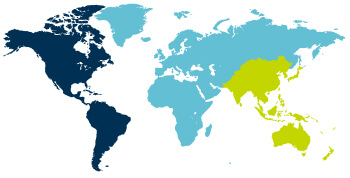
Governments around the world have adopted data breach notification laws that require any person, business, or state agency that collects and stores personal customer information to notify individuals when their unencrypted personal information was, or is reasonably believed to have been, put at risk by a data security breach.
If found to be in non-compliance, organizations will be required to publicly disclose breaches and face potential class-action lawsuits.
Thales can help protect your organization from the consequences of a data breach through a data-centric focus on security around personal information, including:
National data breach disclosure laws include the UK Data Protection Act1, EU General Data Protection Regulation (GDPR)2, South Korea’s Personal Information Protection Act3, Australian Privacy Act4 and others.
Data breach protection and prevention is not as simple as implementing hardware level disk encryption or OS level encryption within systems. Attacks are increasingly able to penetrate perimeter defenses, compromise accounts, and mine data without targets even being aware of the attack5. With this kind of activity, simple encryption schemes won’t prevent a data breach – attackers will access accounts that allow them to decrypt and extract personal data. Driving this are criminal groups willing and able to pay for stolen personal information that has direct monetary value.
A data-centric focus on preventing the loss of personal information to comply with data breach disclosure laws requires:
1http://www.legislation.gov.uk/ukpga/1998/29/contents
2http://eur-lex.europa.eu/LexUriServ/LexUriServ.do?uri=CELEX:31995L0046:en:HTML
3http://www.law.go.kr/main.html
4http://www.oaic.gov.au/privacy/privacy-act/the-privacy-act
5http://www.verizonenterprise.com/DBIR/
Thales provides key components necessary to implement data-centric security across your enterprise. These include:
The first step in protecting sensitive data is finding the data wherever it is in the organization, classifying it as sensitive, and typing it (e.g. PII, financial, IP, HHI, customer-confidential, etc.), so you can apply the most appropriate data protection techniques. It is also important to monitor and assess data regularly to ensure new data isn’t overlooked and your organization does not fall out of compliance.
Thales’ CipherTrust Data Discovery and Classification efficiently identifies structured as well as unstructured sensitive data on-premises and in the cloud. Supporting both agentless and agent-based deployment models, the solution provides built-in templates that enable rapid identification of regulated data, highlight security risks, and help you uncover compliance gaps. A streamlined workflow exposes security blind spots and reduces remediation time. Detailed reporting supports compliance programs and facilitates executive communication.
Thales Access Management and Authentication solutions provide both the security mechanisms and reporting capabilities organizations need to comply with data security regulations. Our solutions protect sensitive data by enforcing the appropriate access controls when users log into applications that store sensitive data. By supporting a broad range of authentication methods and policy driven role-based access, our solutions help enterprises mitigate the risk of data breach due to compromised or stolen credentials or through insider credential abuse.
Support for smart single sign on and step-up authentication allows organizations to optimize convenience for end users, ensuring they only need to authenticate when needed. Extensive reporting allows businesses to produce a detailed audit trail of all access and authentication events, so they can prove compliance with a broad range of regulations.
The CipherTrust Data Security Platform is an integrated suite of data-centric security products and solutions that unify data discovery, protection, control, and access monitoring in one platform.
Thales High Speed Encryptors (HSEs) provide network independent data-in-motion encryption (Layers 2, 3, and 4) ensuring data is secure as it moves from site-to-site, or from on-premises to the cloud and back. Our HSE solutions allow customers to better protect data, video, voice, and metadata from eavesdropping, surveillance, and overt and covert interception—all at an affordable cost and without performance compromise.
Luna HSMs from Thales provide a hardened, tamper-resistant environment for secure cryptographic processing, key generation and protection, encryption, and more. Available in three FIPS 140-2 certified form factors, Luna HSMs support a variety of deployment scenarios.
In addition, Luna HSMs:
Secure your digital assets, comply with regulatory and industry standards, and protect your organization’s reputation. Learn how Thales can help.
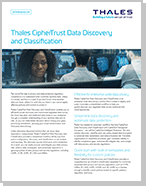
The crucial first step in privacy and data protection regulatory compliance is to understand what constitutes sensitive data, where it is stored, and how it is used. If you don't know what sensitive data you have, where it is, and why you have it, you cannot apply effective...
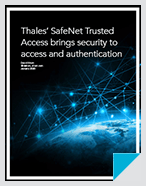
Product review of SafeNet Trusted Access. Explore the options of authentication security that STA offers, to bridge the MFA, SSO and access management worlds in a single, well-integrated package. Discover how your business can bring security to access management.

Offering the broadest range of multi-factor authentication methods and form factors, Thales facilitates and empowers enterprise-wide security initiatives for maintaining and improving secure access to enterprise resources.Thales’s OneWelcome authenticators include hardware and...

Enterprise digital transformation, paired with increasingly sophisticated cyber threats, has created a volatile environment for organizations managing sensitive data. As compliance frameworks and regulatory mandates grow more stringent, security teams face a dual challenge:...
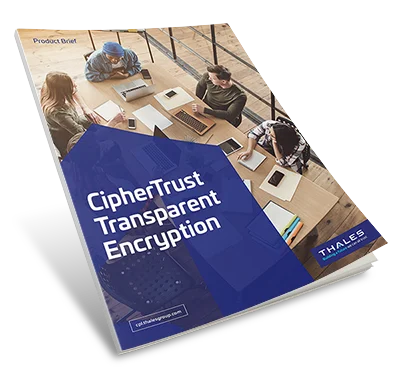
Safeguarding sensitive data requires much more than just securing a data center’s on-premises databases and files. The typical enterprise today uses three or more IaaS or PaaS providers, along with fifty or more SaaS applications, big data environments, container technologies,...
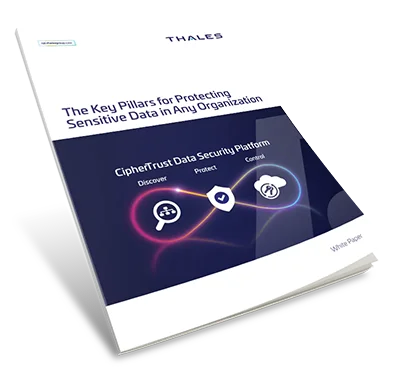
Traditionally organizations have focused IT security primarily on perimeter defense, building walls to block external threats from entering the network. However, with today’s proliferation of data, evolving global and regional privacy regulations, growth of cloud adoption, and...
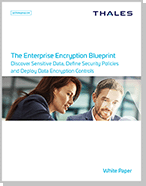
You’ve been tasked with setting and implementing an enterprise wide encryption strategy, one that will be used to guide and align each Line of Business, Application Owner, Database Administrator and Developer toward achieving the goals and security requirements that you define...

Secure your sensitive data and critical applications by storing, protecting and managing your cryptographic keys in Thales Luna Network Hardware Security Modules (HSMs) - high-assurance, tamper-resistant, network-attached appliances offering market-leading performance and...

Business critical data is flowing everywhere. The boundaries are long gone. As an enterprise-wide data security expert, you are being asked to protect your organization’s valuable assets by setting and implementing an enterprise-wide encryption strategy.IT security teams are...

Networks are under constant attack and sensitive assets continue to be exposed. More than ever, leveraging encryption is a vital mandate for addressing threats to data as it crosses networks. Thales High Speed Encryption solutions provide customers with a single platform to ...

Perhaps the most comprehensive data privacy standard to date, GDPR affects any organization that processes the personal data of EU citizens - regardless of where the organization is headquartered.

Any organization that plays a role in processing credit and debit card payments must comply with the strict PCI DSS compliance requirements for the processing, storage and transmission of account data.

Data breach notification requirements following loss of personal information have been enacted by nations around the globe. They vary by jurisdiction but almost universally include a “safe harbor” clause.